10 inconvenient truths about Bosnia
Sunday, 11.11.2007.
21:41

10 inconvenient truths about Bosnia Thousands of houses around the country have been repaired. Freedom of movement is taken for granted and a very high number of refugees have received back title to their old homes. It is no wonder that outsiders familiar with the bad old days are impressed. Some have even actively supported a "Bosnia model" for Iraq or Kosovo. Unfortunately, while all the positive changes described above (and many others as well) are real and significant, Bosnia is still a long way from being a healthy, normal country. In fact, the reality is that the International Community is the essential factor providing the economic underpinning for the country and preventing it from sliding back into conflict and possibly even violence. 1. The dominant feature of Bosnia remains ethnicity. Each of the three main ethnic groups remains wedded to the same views - and prejudices - they had during the fighting itself. While they have all been dissuaded/persuaded/discouraged/prevented from using violence, they continue to play out their differences in virtually every other way. This is the primary factor by far why Bosnia is not working today. This pervasive animosity/suspicion towards the other ethnic groups has diminished little, if at all, over the past twelve years. This is not particularly surprising given both the brutal nature of the fighting in Bosnia and the fact that many of the acts of ethnic cleansing and other war crimes were carried out by neighbors or acquaintances who are still living freely in Bosnia. For anyone doubting this view, take a look at the number of inter-ethnic marriages. Prior to the war, the figure was very high. Now I suspect it is almost zero. 2. The goal of the Dayton Peace Agreement was to end the years of bloody warfare in Bosnia. In this regard it was totally successful. But a very heavy price was paid: the resulting agreement was a mixture of compromise, idealism, conflicting goals, and concessions to each of the three ethnic groups. It codified a complex system of entities, cantons with a weak central government, three different Parliaments and three different Prime Ministers. Each of the three ethnic groups holds tightly to those parts of the Dayton Agreement, which suit its purposes and consistently try to chip away at those parts, which do not. Its emphasis on ethnicity on all questions actually helps to perpetuate the ethnic problems in the country and its complex structure is one of the principal roadblocks to progress in Bosnia. 3. EU "Soft Power," or using the promise of closer ties to the EU and eventual membership is no longer effective in getting the parties to come together on issues that the EU deems essential, such as police reform. The reasons are the continued importance of ethnic beliefs on the one hand and the lack of any concrete time frame for EU membership on the other. At the same time, the days when the United States through force of will could cajole the parties into making concessions is long past. 4. The term "Bosniak" was originally used in the initial phases of the war to describe numerous Bosnians of all ethnicities who wanted to work together to keep the newly independent state functioning. One of the saddest commentaries about today's situation is that the term now is simply the politically correct way to describe Bosnian Muslims and nothing more. 5. While there has been outstanding success in returning properties all over Bosnia to the rightful owners, the significance has been overstated. A very high number of the restored properties are either sold quickly, traded, or are inhabited very infrequently, if at all. 6. Freedom of religion is one of the most important human rights and one, which Americans in particular treasure. In Bosnia, however, this very freedom of expression is either deliberately being used to provoke the other ethnic groups or they perceive this to be the case. Regardless of the truth of the matter, the end result is that overt/public religious expression in Bosnia is helping to widen, not shrink, the gap between the ethnic groups. 7. The amount of international financial assistance to Bosnia in the past twelve years, even excluding the military component, has been several billions of dollars. It's time for a thorough study of exactly where all that money has gone, as I suspect the results would be very enlightening. A very significant portion, for example, has been used to pay the costs of various outsiders (members of the International Police Task Force, security personnel guarding senior officials in the International Community, personnel in the Office of High Representative, various non-governmental organizations, and advisors of all kinds). Administrative costs to implementers of various programs are also a significant cost item. (American non-governmental organizations implementing U.S. programs in Bosnia, for example, change an administrative fee for their work than can range from 10 to 20 percent). Infrastructure remains a huge problem largely unaddressed. The road network, twelve years after Dayton, remains a disaster. The end result is that far too little is to show for all the resources spent. 8. The Bosnian Muslims (Bosniaks) have always wanted a strong centralized state. They view Bosnia as a whole exactly as the Serbs viewed the former Yugoslavia: they identify with all of it. The other two ethnic groups do not. This is in part due to the fact that the Bosniaks are the most numerous and therefore at least in theory would be the most powerful group. The Bosnian Serbs to a person consider that they live in the Republika Srpska and will do all they can to maintain or expand the autonomy of the RS. The Bosnian Croats clutch their Croatian passports and work only to ensure that the equal rights they received in Dayton (despite being the smallest of the three ethnic groups) remain intact. These three fundamental viewpoints are mutually exclusive and explain why the system is deadlocked now and is likely to remain that way for the foreseeable future. 9. Primarily because it is more effective and in keeping with their own national experiences, the key members of the International Community (except the Russians) are sympathetic to the Bosniak viewpoint on how Bosnia should function. In other words, they are uncomfortable with the degree of autonomy given to each entity, the weak central government, and the veto powers given to each ethnic group by the Dayton Agreement. That accounts for why various High Representatives have pressed the parties so hard to "voluntarily" give more power to the centralized state at the expense of the entities and why they have stretched their powers to the legal limit to make the system more workable. The current crisis involving the decisions of the High Representative is precisely over these issues. 10. Finally, the most timely and critical inconvenient truth of all: a number of factors are coming together to create a potentially serious crisis in Bosnia. These include the impact of Kosovo; increased nationalist sentiment in Serbia; the pro-active role being played by Russia in support of broad Serbian interests (they may, for example, cause problems with the annual renewal of the EUFOR mandate by the UN next month); the growing frustration of all the Bosnian parties over years of rule by the International Community; and the waning interest of the International Community in Bosnia. Moreover, all the key political parties understand that the role of the International Community is diminishing and will continue to do so. This is emboldening them to make statements and take actions, which they would not have dared to do several years ago. In other words, the forces, which have kept Bosnia stabile for twelve years, are weakening while the destabilizing factors are growing in strength. It's a bad combination. Milosevic, Izetbegovic, Tudjman, shake hands on the Dayton Peace Accord (FoNet) For anyone who traveled around Bosnia in the immediate aftermath of the Dayton Peace Agreement, the visible changes now are impressive. Sarajevo has slowly regained a lot of its old charm and many of the scars of war have been refurbished or otherwise removed. William Montgomery A number of factors are coming together to create a potentially serious crisis in Bosnia. These include the impact of Kosovo; increased nationalist sentiment in Serbia; the pro-active role being played by Russia in support of broad Serbian interests; the growing frustration of all the Bosnian parties over years of rule by the International Community; and the waning interest of the International Community in Bosnia.
10 inconvenient truths about Bosnia
Thousands of houses around the country have been repaired. Freedom of movement is taken for granted and a very high number of refugees have received back title to their old homes. It is no wonder that outsiders familiar with the bad old days are impressed. Some have even actively supported a "Bosnia model" for Iraq or Kosovo.Unfortunately, while all the positive changes described above (and many others as well) are real and significant, Bosnia is still a long way from being a healthy, normal country. In fact, the reality is that the International Community is the essential factor providing the economic underpinning for the country and preventing it from sliding back into conflict and possibly even violence.
1. The dominant feature of Bosnia remains ethnicity. Each of the three main ethnic groups remains wedded to the same views - and prejudices - they had during the fighting itself. While they have all been dissuaded/persuaded/discouraged/prevented from using violence, they continue to play out their differences in virtually every other way. This is the primary factor by far why Bosnia is not working today. This pervasive animosity/suspicion towards the other ethnic groups has diminished little, if at all, over the past twelve years. This is not particularly surprising given both the brutal nature of the fighting in Bosnia and the fact that many of the acts of ethnic cleansing and other war crimes were carried out by neighbors or acquaintances who are still living freely in Bosnia. For anyone doubting this view, take a look at the number of inter-ethnic marriages. Prior to the war, the figure was very high. Now I suspect it is almost zero.
2. The goal of the Dayton Peace Agreement was to end the years of bloody warfare in Bosnia. In this regard it was totally successful. But a very heavy price was paid: the resulting agreement was a mixture of compromise, idealism, conflicting goals, and concessions to each of the three ethnic groups. It codified a complex system of entities, cantons with a weak central government, three different Parliaments and three different Prime Ministers. Each of the three ethnic groups holds tightly to those parts of the Dayton Agreement, which suit its purposes and consistently try to chip away at those parts, which do not. Its emphasis on ethnicity on all questions actually helps to perpetuate the ethnic problems in the country and its complex structure is one of the principal roadblocks to progress in Bosnia.
3. EU "Soft Power," or using the promise of closer ties to the EU and eventual membership is no longer effective in getting the parties to come together on issues that the EU deems essential, such as police reform. The reasons are the continued importance of ethnic beliefs on the one hand and the lack of any concrete time frame for EU membership on the other. At the same time, the days when the United States through force of will could cajole the parties into making concessions is long past.
4. The term "Bosniak" was originally used in the initial phases of the war to describe numerous Bosnians of all ethnicities who wanted to work together to keep the newly independent state functioning. One of the saddest commentaries about today's situation is that the term now is simply the politically correct way to describe Bosnian Muslims and nothing more.
5. While there has been outstanding success in returning properties all over Bosnia to the rightful owners, the significance has been overstated. A very high number of the restored properties are either sold quickly, traded, or are inhabited very infrequently, if at all.
6. Freedom of religion is one of the most important human rights and one, which Americans in particular treasure. In Bosnia, however, this very freedom of expression is either deliberately being used to provoke the other ethnic groups or they perceive this to be the case. Regardless of the truth of the matter, the end result is that overt/public religious expression in Bosnia is helping to widen, not shrink, the gap between the ethnic groups.
7. The amount of international financial assistance to Bosnia in the past twelve years, even excluding the military component, has been several billions of dollars. It's time for a thorough study of exactly where all that money has gone, as I suspect the results would be very enlightening. A very significant portion, for example, has been used to pay the costs of various outsiders (members of the International Police Task Force, security personnel guarding senior officials in the International Community, personnel in the Office of High Representative, various non-governmental organizations, and advisors of all kinds). Administrative costs to implementers of various programs are also a significant cost item. (American non-governmental organizations implementing U.S. programs in Bosnia, for example, change an administrative fee for their work than can range from 10 to 20 percent). Infrastructure remains a huge problem largely unaddressed. The road network, twelve years after Dayton, remains a disaster. The end result is that far too little is to show for all the resources spent.
8. The Bosnian Muslims (Bosniaks) have always wanted a strong centralized state. They view Bosnia as a whole exactly as the Serbs viewed the former Yugoslavia: they identify with all of it. The other two ethnic groups do not. This is in part due to the fact that the Bosniaks are the most numerous and therefore at least in theory would be the most powerful group. The Bosnian Serbs to a person consider that they live in the Republika Srpska and will do all they can to maintain or expand the autonomy of the RS. The Bosnian Croats clutch their Croatian passports and work only to ensure that the equal rights they received in Dayton (despite being the smallest of the three ethnic groups) remain intact. These three fundamental viewpoints are mutually exclusive and explain why the system is deadlocked now and is likely to remain that way for the foreseeable future.
9. Primarily because it is more effective and in keeping with their own national experiences, the key members of the International Community (except the Russians) are sympathetic to the Bosniak viewpoint on how Bosnia should function. In other words, they are uncomfortable with the degree of autonomy given to each entity, the weak central government, and the veto powers given to each ethnic group by the Dayton Agreement. That accounts for why various High Representatives have pressed the parties so hard to "voluntarily" give more power to the centralized state at the expense of the entities and why they have stretched their powers to the legal limit to make the system more workable. The current crisis involving the decisions of the High Representative is precisely over these issues.
10. Finally, the most timely and critical inconvenient truth of all: a number of factors are coming together to create a potentially serious crisis in Bosnia. These include the impact of Kosovo; increased nationalist sentiment in Serbia; the pro-active role being played by Russia in support of broad Serbian interests (they may, for example, cause problems with the annual renewal of the EUFOR mandate by the UN next month); the growing frustration of all the Bosnian parties over years of rule by the International Community; and the waning interest of the International Community in Bosnia. Moreover, all the key political parties understand that the role of the International Community is diminishing and will continue to do so. This is emboldening them to make statements and take actions, which they would not have dared to do several years ago. In other words, the forces, which have kept Bosnia stabile for twelve years, are weakening while the destabilizing factors are growing in strength. It's a bad combination.










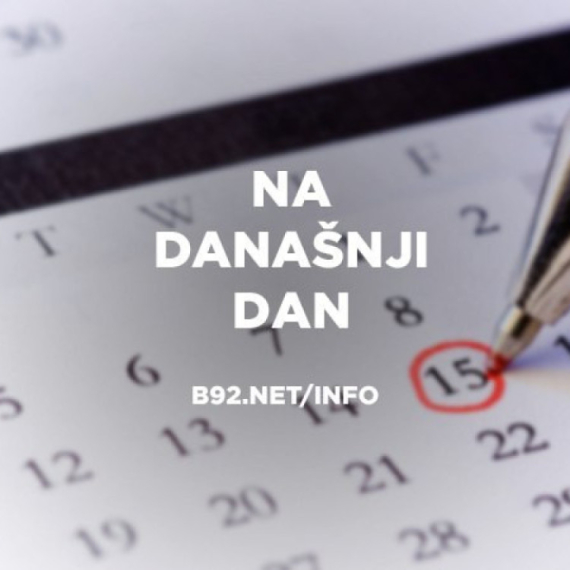
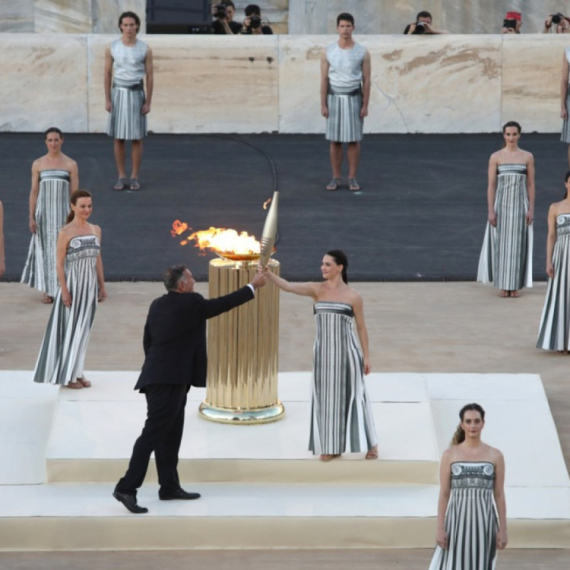
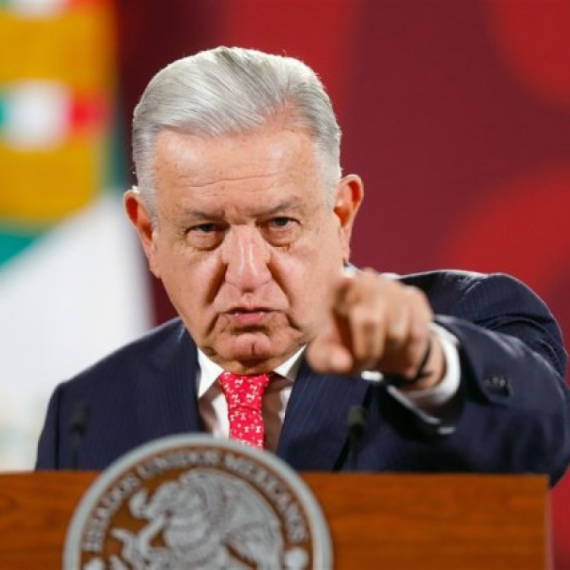



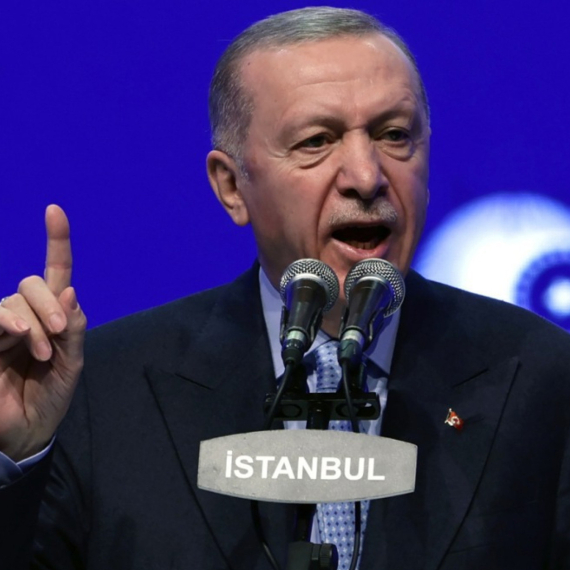


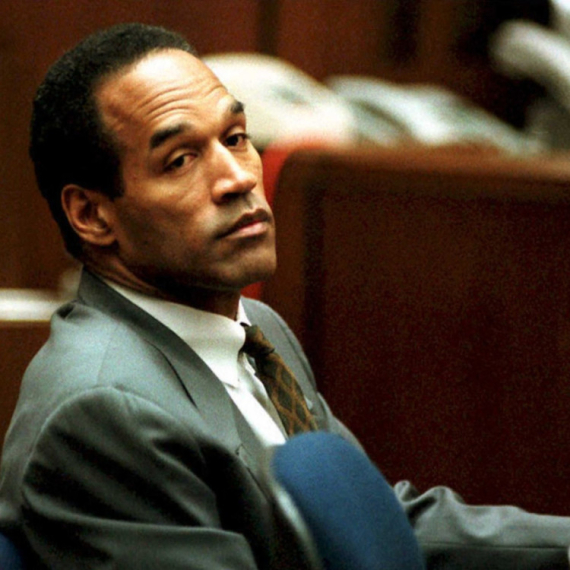

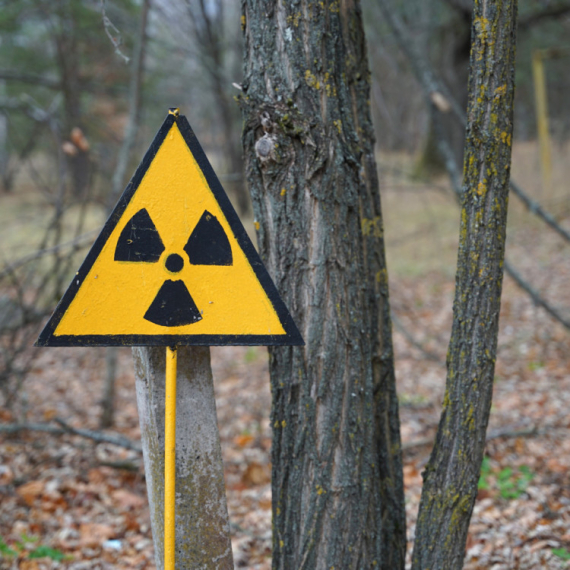


























Komentari 32
Pogledaj komentare